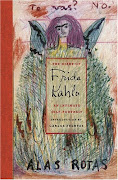Welcome to 139.226: Life Writing at Massey Albany.
This year, 2013, the course will be taught by Dr. Mary Paul (course coordinator). There will also be guest lectures by Dr. Jack Ross and other speakers in the course of the semester.
So what exactly does Life Writing consist of? Here's what's up on the Massey University website:
Paper Number:
139.226
Paper Title:
Life Writing
Credit Value:
15 credits
Calendar Prescription:
A theoretical and practical study of the nature of life writing, including oral history, biography, and autobiography, personal memoirs and family history.
Pre and co requisites:
None
Semester:
Semester 1
Campus:
Auckland (Albany)
Mode:
Internal
E-Learning Category:
None (no web component)
Paper coordinator:
Dr. Mary Paul
School of English and Media Studies
Atrium Building Level L2.35
Albany Campus
Phone: 414 0800 x 9064
Email: m.paul@massey.ac.nz
Timetable (internal only):
The timetable for lectures, laboratories, and tutorials can be found at http://publictimetable.massey.ac.nz/
Learning Outcomes:
- To introduce the theoretical basis of life writing;
- To improve understanding of how personal and non-fictional narratives contribute to New Zealand's cultural history;
- To develop students' awareness of processes for researching human subjects for the writing of biography in related disciplines;
- To develop skills and techniques for reviewing and recording oral history;
- To develop skills and techniques for writing biography and autobiography;
- To develop creative writing skills
Major Topics:
To produce biographical or autobiographical writing you do not need to study the whole of the history of these genres or to define them definitively. In this course you will read extracts and books in order to identify how writers produce exciting and engaging writing that resonates for you as readers and, to find models for the kind of life writing you want to produce; attend lecture/seminars discussing examples of, and ideas about life writing; and carry out regular writing exercises and practice giving and receiving constructive criticism.
For this first seminar/lecture hour you will usually be required to have read an article or extract. For the second part, the workshop sessions, you will be asked to bring along your writing 'homework' and be prepared to discuss it with other students. Their responses to your writing, as well as comments on features such as structure, word choice, condensation, and imagery will help you to revise and edit your work and to decide on the direction of your major project.
Assessment Proportions:
Internal Assessment: 100%.
Description of Assessment Activities:
Assessment of creative work is difficult and also sometimes quite sensitive as students may be writing about personal material. Assessment, then, will not be based on your 'topic,' but on how effective your composition is in the mode or style that you choose.
ASSIGNMENTS:
Title: Journal Entries
Worth: 20%
Min Length: 1500 words
Title: Short writing exercises
Worth: 30%
Min Length: 3 x 1 page
Title: Proposal for major project
Worth: 0%
Date due: Wk 9
Min Length: 1 page
Title: Major Project
Worth: 40%
Min Length: 10 + 1 pages
Title: Participation
Worth: 10%
Consisting of: attendance / exercises / contribution to discussion
Due Dates / Deadlines:
The due dates for assignments (and any other internal assessment components) will be advised at the start of each semester.
Penalties for late assignment submission:
Deduction of one mark per day. Tutors are note required to mark work which is more than one week late, except by prior arrangment.
Assignment turnaround:
Two weeks.
Any specific requirements for passing the paper:
Weekly attendance at lecture and workshop.
Completion of assignments as above
Principal Textbook:
Course Anthology, available from Students Notes in the basement of Quad B.
Three volumes of Life Writing by former students in the course are available from the School of Social and Cultural Studies office (Atrium level 2) for $10 apiece. You can find details of each of these books here.
A bibliography of recommended further reading is available here.




No comments:
Post a Comment